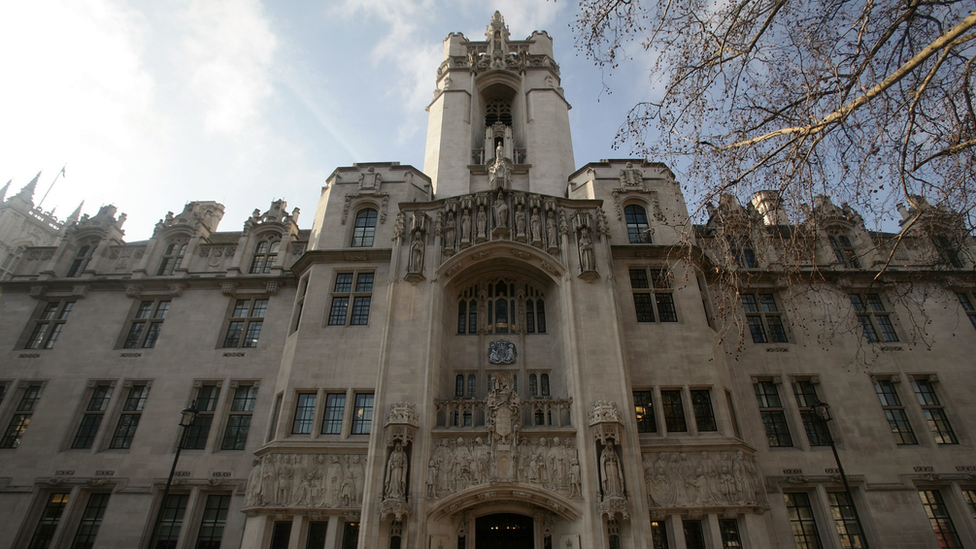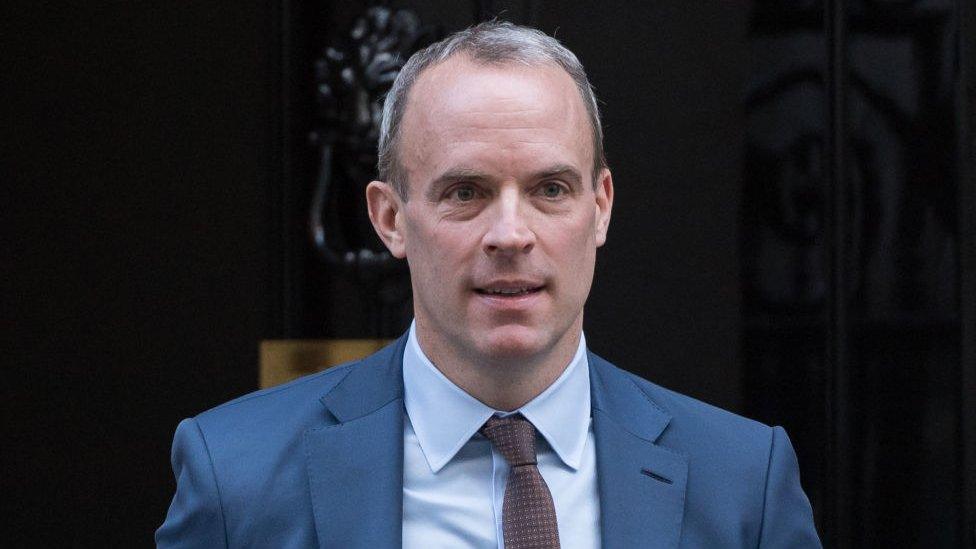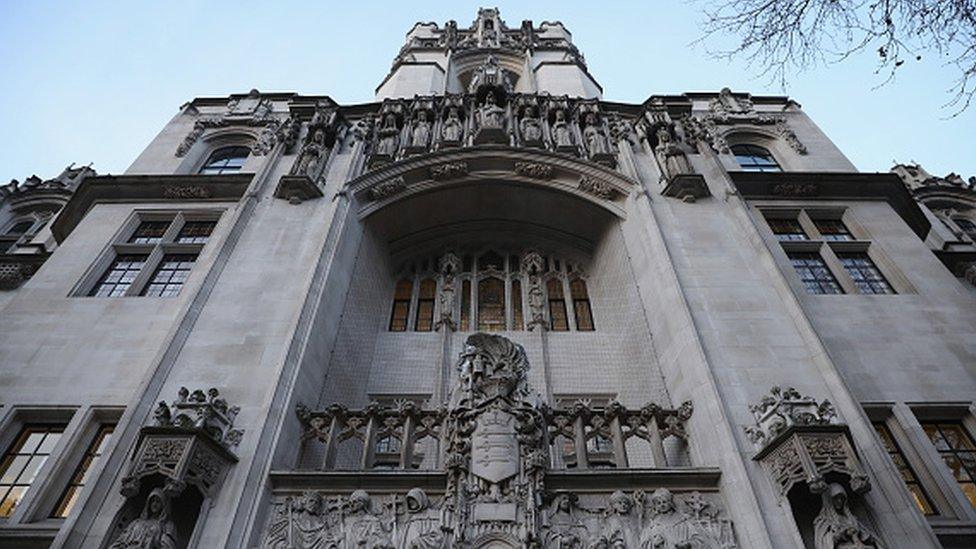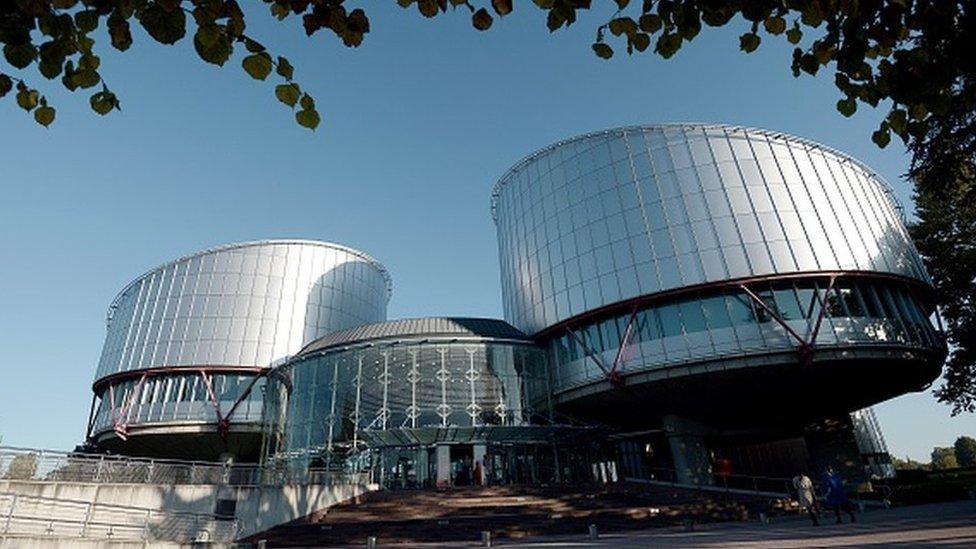Bill of Rights: Call to scrap plans to rewrite human rights law
- Published

The Bill of Rights aims to reassert the primacy of UK courts in human rights cases
Plans to rewrite UK human rights law would "damage people's ability to enforce their rights" inside and outside court, MPs and peers say.
The influential Joint Committee on Human Rights said a planned Bill of Rights restricts certain protections "the government finds inconvenient".
It said the bill should not go ahead in its current form.
But the government said the bill would strengthen freedom of speech and end "abuse of our laws".
The Bill of Rights, external is intended to replace the Human Rights Act, which sets out in law the basic rights and freedoms everyone in the UK is entitled to.
The government says the bill is designed to "help prevent trivial human rights claims from wasting judges' time" and to make it clear UK courts do not always need to follow the decisions of European courts.
But in a new report, the cross-party committee argues the bill is likely to reduce the protections currently provided by the Human Rights Act.
The committee said its public consultation found people were "overwhelmingly against the proposals", with victims of violence against women, care home residents, and those whose family members have lost their life due to the actions of the police among those raising concerns.
Its report said the reforms would undermine the universality of human rights by making it more difficult for certain groups to bring cases.
The committee said the bill also "risks dangerous uncertainty by abandoning decades of important case law".
It said the likely result of the legislation would be that more people would need to go the European Court of Human Rights in Strasbourg to enforce their rights and more judgements would be made against the UK.

The Bill of Rights has been championed by Justice Secretary Dominic Raab
The committee's chairwoman, SNP MP Joanna Cherry said: "Human Rights are universal. A Bill of Rights should reaffirm and reinforce the fundamental rights that protect everyone in the UK, but this bill does nothing of the sort."
She added: "We have called on the government to reconsider the vast majority of the clauses of the bill.
"However, there is such little appetite for these reforms and the impact is likely to be so damaging to human rights protection in the UK it may be more sensible to scrap the bill in its entirety."
The bill has been championed by Justice Secretary Dominic Raab, who first introduced it when he held the role under Boris Johnson.
It was later shelved when Mr Raab was sacked by Mr Johnson's successor as prime minister, Liz Truss.
The legislation has been revived by Rishi Sunak's government, but there is still no timetable for when MPs will start debating it.
A Ministry of Justice spokesperson said: "The Bill of Rights builds on the UK's proud tradition of liberty by strengthening freedom of speech, reinjecting a healthy dose of common sense to the system and ending abuse of our laws.
"The government was elected on a manifesto that committed to updating the Human Rights Act to ensure there is a proper balance between the rights of individuals, our vital national security and effective government - that is what we are doing."
Related topics
- Published7 September 2022

- Published11 May 2015
